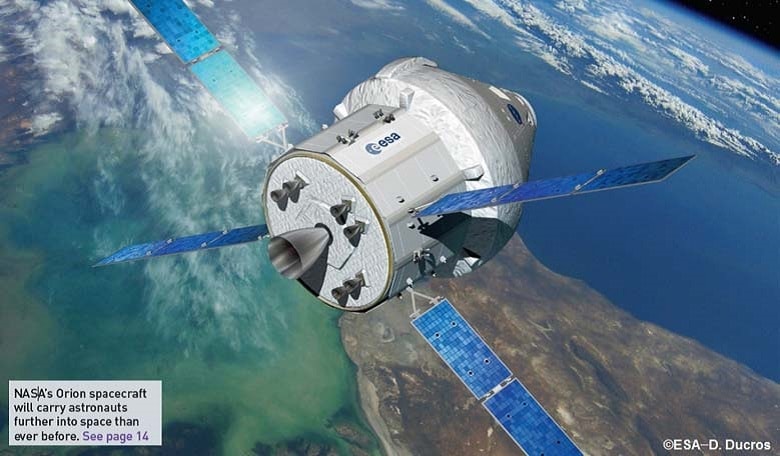ESA announced a contract worth $490 million on 18 November 2014 for Airbus Defence and Space to manufacture the service modules for NASA’s four crew Orion MPCV deep-space capsule. The module is to be constructed at an Airbus facility in Bremen, Germany.
Based on the successful Automated Transfer Vehicle cargo spacecraft that has been resupplying the International Space Station (ISS) for several years, the service vehicle will provide power, support environmental services and propulsion to the main Orion vehicle. It will use a Space Shuttle OMS engine and other thrusters, allowing the Orion to manoeuvre during its future deep space missions to asteroids, the Moon and eventually to Mars. As part of an ISS access barter deal with NASA, the Orion service module involvement might provide ESA with ISS missions to 2020 and beyond.
The Orion capsule itself is being built by the Lockheed Martin Corporation. It is based on the Apollo capsule approach, but contains 50 per cent more volume and possesses advanced computers, glass screen control panels, an automated docking system and new waste management systems.
It will soon be tested atop a Delta Heavy rocket in December 2014 in uncrewed mode, during the EFT-1 test flight out to 5,800 km beyond low-Earth orbit. An Orion launch on the heavy lift Space Launch System (SLS) rocket will occur in 2017. The SLS has Boeing as its main contractor, with a Launch Abort System provided by Orbital Sciences in the US. Europe has hopes of obtaining an ESA astronaut’s seat aboard a future Orion deep-space mission.











